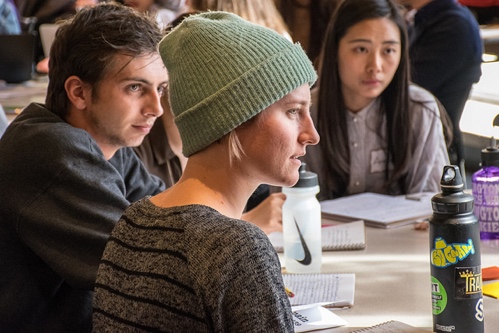1.4 Activities and Applications
From theory to practice…

- Strive to encounter others in an attitude of openness and a spirit of curiosity. Seek to understand rather than to predict. To the extent possible, suspend judgment for as long as you can, forming an image of the other person gradually through conversing. Active listening helps, i.e., focusing intently on the words and body language of the other person.
- Don’t apply culturally differentiating labels to individuals. Generalizations about norms of behavior are misplaced when we are dealing one-on-one with an individual. Because they are widespread, it’s good to know about the categories (i.e. “individualism” vs. “collectivism”) used to differentiate national cultures, but it’s important to keep in mind that they represent broadstroke generalizations, which can in no way be applicable to every individual from that culture.
- Beware of unexamined assumptions. You are likely to have gleaned information about different cultures from local new sources or from friends or family or from what you may have learned in school. You should be cautious with such “received wisdom”, which may rely on stereotypes and outdated information. It’s important to learn what sources to trust – both in-person and online. Equally important is a willingness to be open to different points of view.
- Be alert to your personal filter bubble. You should not assume that you are receiving neutral results from search requests or getting balanced views from online news providers. They may be feeding you what they assume you want, namely more of the same. Try using a different web browser or logging out of your Google or other accounts, to see if suggested links change.
For discussion and reflection…
- Using the discussion of culture presented in this unit, how would you describe your culture? Why are so many people afraid to communicate with people from cultures different from their own? Do you agree with the greater need for intercultural communication competence today? Why or why not?
- Does the coronavirus pandemic of 2020 demonstrate that it is better for countries to cut themselves off as much as possible from others and, to the extent feasible, develop resources that make the economy self-reliant? What are the upsides and downsides?
- To what extent have you experienced the media echo chamber and the filter bubble? What methods can help overcome the restrictions on connecting with others? How can greater digital literacy help?
- After watching the Chimamanda Adichie TED talk (“The dangers of a single story”):
What does she mean by a “single story”? What would be other ways to describe this phenomenon? Have you had personal experiences that parallel those of Adichie?
- After watching the Alisa Miller TED talk (“How the news distorts our worldview”):
Imagine a map which would represent the geographical areas that you read, hear, or talk about the most? What would the map look like? What are areas of the world you hardly ever hear about?
A communication technique that requires that the listener fully concentrate, understand, respond and then remember what is being said.

